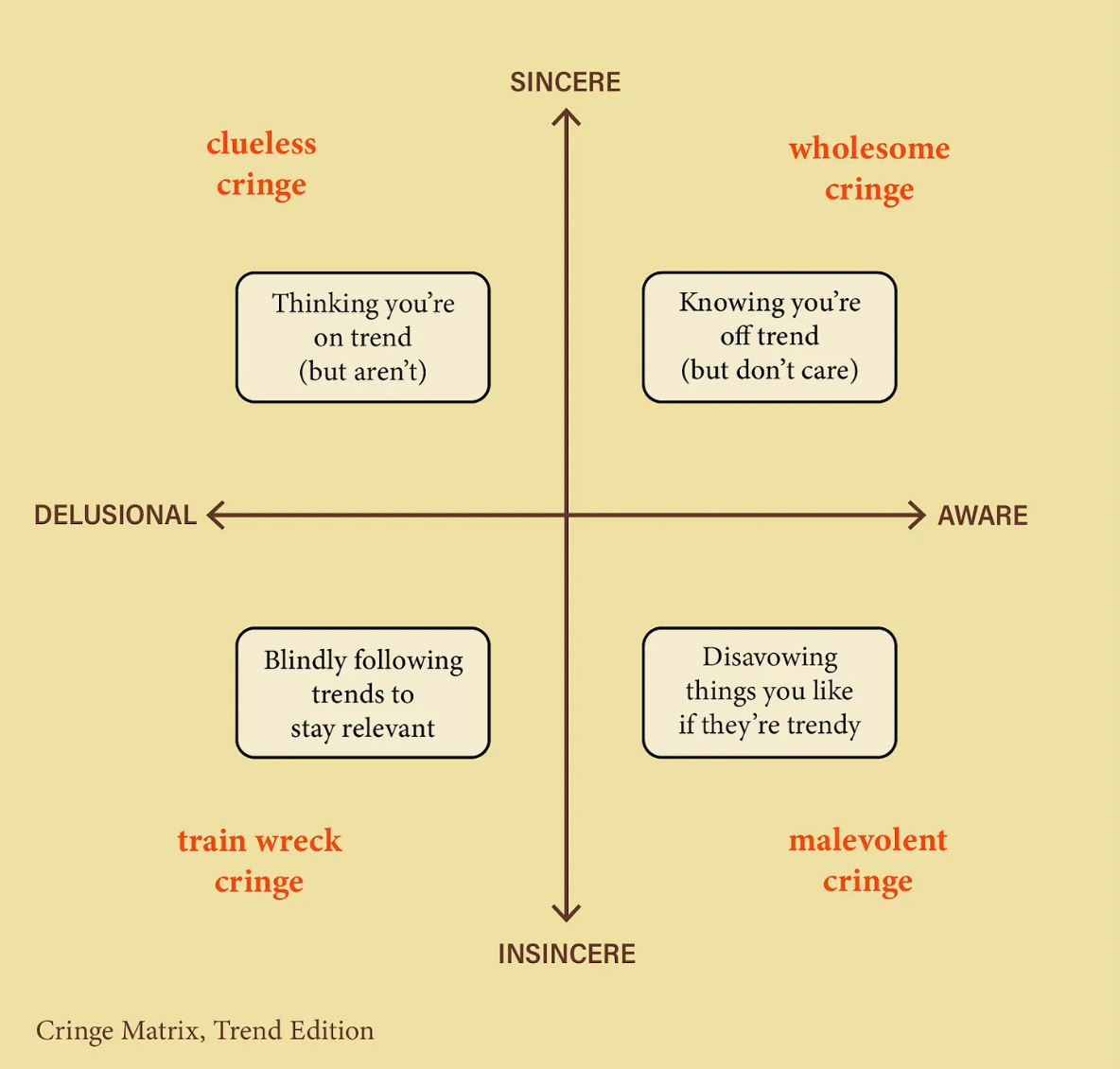🗞️ Reads—On what's Human Nowadays
Got some hopefully inspiring, recommended reading for you, just in time for a long sunny weekend :-) This is the first iteration of "Reads", in which I’ll regularly share interesting articles, podcasts or other publications I found, and group according to a pattern I think I saw in the publications I follow.
I try to make a habit of saving all the articles I think say something valuable about the times we live in. To share or revisit. Some of them I use to reference in projects I work on, other I’m just intrigued by. Feel free to find more of them, not linked here on Are.na.
This month, I've gathered four fascinating articles that I felt capture different dimensions of contemporary human experience — from our complicated relationship with money in the age of social media, to our pursuit of transcendence through fitness rituals.
Each piece offers a window into what makes us distinctly human in turbulent times: our need for connection, our quest for meaning, our evolving relationship with technology, and our experience of both discomfort and awe.
Secular Devotion: Finding Transcendence in Modern Exercise
📎 “Keep Up” — via GRANTA
In a thoughtful meditation on fitness culture, Saba Sams reveals how exercise classes have evolved into quasi-religious rituals for the modern age.
From the red-lit underground chambers of Barry's Bootcamp to reformer Pilates machines that resemble instruments of devotional torture, these spaces have replaced traditional houses of worship for many seeking transcendence through physical suffering. "Where once devotees entered a social space for the benefit of their immortal soul, now they enter a social space for the benefit of their mortal body," Sams observes.
The communal aspect is crucial—participants could exercise alone but choose to gather with "strangers united by a single appetite," moving in synchronicity through physical trials that result in something approaching ecstasy. The comparison to addiction is explicit, though exercise offers a unique paradox where pleasure comes not from chasing the initial high but from reaching the endpoint and experiencing profound relief.
Rethinking Intelligence: From Cells to AI
📎 “The Prospect of ‘More Than Human’ Intelligence” — via NOEMA
In an exploration of intelligence across domains, Nathan Gardels highlights a fundamental paradigm shift in how we understand computation. Scientists now recognize that computation isn't merely a human invention but a natural phenomenon underlying all forms of intelligence. From DNA's "tape-like" instructions to cellular chemical signaling, nature has been computing long before we built our first machines.
Google researchers Blaise Agüera y Arcas and James Manyika argue that this understanding reveals a universal principle: intelligence emerges through self-organizing computational processes that enable learning, adaptation, and reproduction. As AI advances through stages of neural computing to predictive, general, and collective intelligence, we're not creating something entirely artificial but extending patterns already present in nature.
This perspective suggests we're on the cusp of developing "more than human" intelligence—not as a replacement for humanity, but as an extension of our collective cognitive capabilities that may ultimately help us better understand ourselves.
Money Dysmorphia: When Social Media Distorts Financial Reality
📎 “Are You the Only One Who’s Broke? Or Is It ‘Money Dysmorphia’?” — via The New York Times
In an age where Instagram feeds showcase endless luxury — martini glasses clinking, steakhouse dinners, and tropical vacations — many young adults are experiencing what financial planners call "money dysmorphia."
This phenomenon describes people who have a distorted view of their financial standing, often feeling inadequate despite objectively stable finances. A 2024 study found 43% of Gen Z reports this condition, fueled by the stark contrast between social media's "boom boom aesthetic" of lavish consumption and news headlines warning of economic turmoil.
The psychological impact is profound: some young people unnecessarily restrict spending while others make impulsive purchases they can't afford, driven by a mix of FOMO and fatalistic thinking. As one 27-year-old put it, "What are we saving for?" when crisis seems perpetual. This generational tension between aspirational spending and financial anxiety reflects how social comparison has transformed from "keeping up with the Joneses" to keeping up with carefully curated online personas—leaving many wondering if they're the only ones truly struggling.
Cringe = Sublime: When Discomfort Transcends into Awe
📎 “Cringe = Sublime” — via Protein
In an intriguing exploration of cultural sensibilities, Elizaveta Federmesser proposes a provocative equation: cringe equals sublime. While seemingly opposites — one making us recoil, the other inspiring awe — these emotional responses actually operate on the same spectrum of heightened awareness.
Federmesser defines cringe as "a strong emotional response to the recognition of a failed attempt," suggesting it creates tiny ruptures in our mundane reality, momentarily shattering our comfort and potentially allowing the sublime to slip through.
That’s it for this week. Will be back soon. Wishing you a happy easter/spring weekend for now — Cheers! ✌️




